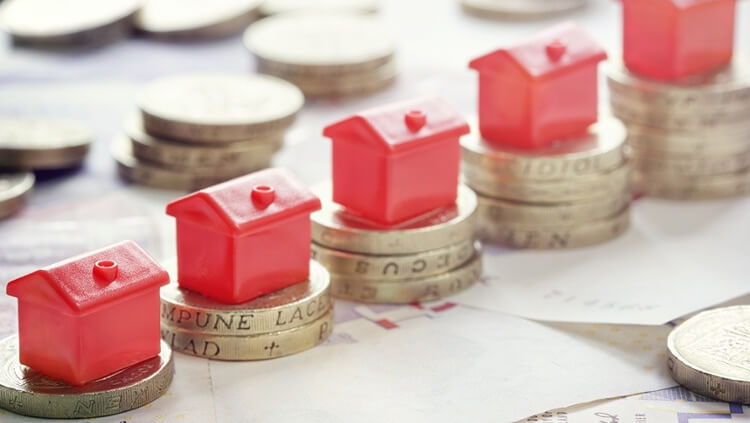
Many hotels regard revenue management and hotel operations as two separate departments with different responsibilities, objectives and no natural link.
NB: This is an article from Optii Solutions
In my experience, I’ve seen that collaboration between revenue and housekeeping managers can transform a hotel’s profitability. Hotel operations technology focuses on optimizing efficiency and reducing costs, while revenue managers concentrate on pricing strategies and increasing revenue.
Subscribe to our weekly newsletter and stay up to date
Due to these differences, and their place on opposite sides of the profitability equation, there is no obvious link between the two departments. As a result, strengthening collaboration isn’t always a busy hotelier’s priority. One key connection between them is that hotel operations can improve the hotel’s service and standards, enabling revenue managers to increase rates.
Making use of data
Guest expectations have changed significantly post-pandemic. To adapt to these expectations, it’s critical that hotels use data to make insight-driven decisions. Bringing data from various sources together provides new insights and perspectives that can help the hotel thrive.
If we start looking at hotel operations with the same strategies and technologies used for revenue management, then it will have enormous potential to inform pricing strategies and improve profitability. For example, if the Cost per Occupied Room (CPOR) is low due to housekeeping efficiencies, this translates to higher margins on each room.
The link between occupancy and workforce planning is another area where revenue management and hotel operations technology can be used to improve profitability. Revenue managers have access to data showing the number of bookings during peak and off-peak periods, which can be used to inform the hotel’s hiring practices. Having the right number of employees for the season helps the hotel meet guest needs and better manage labor, a hotel’s largest expense.
The same can be applied to preventative maintenance as hotel operations technology can show the usage and repair frequency of certain assets which helps to inform future purchasing decisions. Housekeeping and maintenance data can also be used with occupancy data to forecast and plan maintenance operations. This will ensure the hotel’s assets are kept in good condition ahead of busy periods.
Combining these data points helps achieve a unified strategy to raise the Average Daily Rate (ADR). Acting on guest feedback can lead to improved cleanliness scores, service response, online reviews, and asset maintenance. These are just some of the ways hotel operations can be used to increase rates.
Meeting guest demands
But, higher room rates have a direct impact on customer expectations. By paying more for their room, guests expect better service in return. Although hotel operations technology works in the background, guests feel and see the impact of hotel operations software through the high-quality rooms and exceptional service they receive at the hotel.
Technology also enables greater personalization, as guests’ preferences can be recorded and saved for their next stay. These small changes greatly impact the guest experience and brand reputation, ensuring that guests continue to return to the hotel and generate revenue. It also means that revenue managers can charge a premium for rooms due to the high-quality service offered.
The labor shortages and increased labor costs in the hospitality industry is adding extra pressure and stress to hoteliers. Amidst these difficult circumstances, it’s more likely that things will go wrong, and reduced manpower means it’s less likely that guest demands will be met. For example, guest requests may be missed because front desk and housekeeping teams are overwhelmed. With hotel operations technology, not only will work be easier, but communications between departments will be more transparent.
Using revenue management and hotel operations tools enables existing staff to do more with less, making their jobs easier while improving the guest experience. There are several reasons for this, from increased automation to having access to real-time data. With this information, hoteliers can develop a playbook to help them navigate and adapt to various challenging conditions facing their hotels.
Investing in technology provides insight into the hotel’s productivity levels which can alleviate costly decisions like adding outsourced or 3rd party labor. Technology helps optimize hotel productivity, ensuring that more gets done in less time which reduces the need to hire new staff members.
How revenue management and hotel operations are interconnected
Revenue managers need to work with various stakeholders including sales, marketing, and operations in order to determine, create, and execute their pricing strategies. The cost of turning rooms, variations in the channel of guest acquisitions, and the impact of digital marketing campaigns are all contributors to how revenue managers can price and sell their hotel rooms. These data points are just one example of how these technologies can be integrated to provide a more complete view of a hotel’s profitability. Having additional data on all the hotel’s operations greatly impacts the guest’s experience, the ability to set prices, and the hotel’s profitability.
Integrating revenue management strategies with hotel operations creates a significant opportunity to improve hotel profitability. These tools can make the lives of staff members easier while increasing productivity. By breaking down departmental silos and combining data from housekeeping and revenue management, hotels can increase profitability while enhancing the guest experience. By investing in these technologies, hotels have the information they need to compete and adapt to the changing world of hotel operations.




